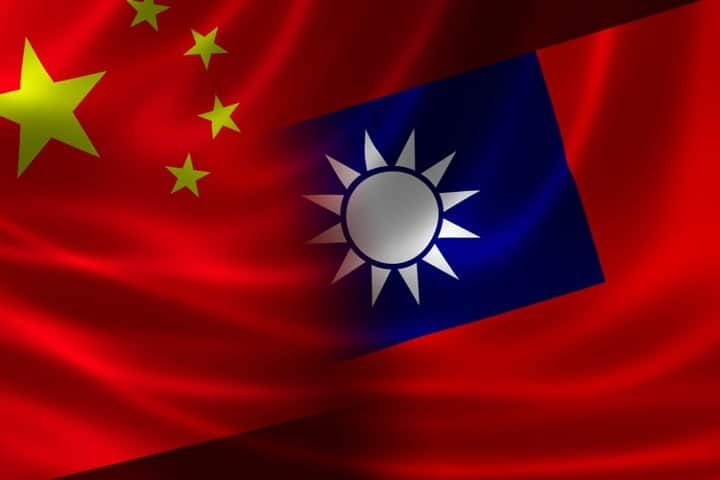
The potential invasion of Taiwan by China is one of the top items of concern among U.S. foreign policy officials. The war between Russia and Ukraine has only intensified fears that China may at any moment launch a military invasion of the island in a move that at best would mean the fall of a free republic to the clutches of Beijing’s totalitarian regime, and at worst spark World War III.
Chinese President Xi Jinping has stated that he believes China has the right to use force against Taiwan in order to compel it to merge with the mainland.
“We make no promise to renounce the use of force and reserve the option of taking all necessary means,” Xi said back in 2019, warning that China would not allow “external interference.”
Nevertheless, the fears of a military conflict obscure the fact that China’s Plan A, articulated often, is not violent force, but a “peaceful” “reunification” through political means.
Just as the United States during World War II pioneered nuclear warfare, China has pioneered the use of unrestricted warfare, which, according to Beijing’s military theorists, is warfare in which anyone and anything can become a tool to further military ends. By applying these principles, China — through a cunning combination of propaganda, diplomacy, and weaponized economics — is successfully outmaneuvering the United States, positioning itself as the new top superpower.
It is this same strategy — political machination instead of overt force — that China intends to use to conquer Taiwan. In this sense, then, the invasion of Taiwan isn’t something that will happen in the future.
It is already underway.
In March, Chinese Premier Li Keqiang pledged a “peaceful” merging of Beijing with the Republic of China — the official name of Taiwan. “We should promote the peaceful development of cross-Strait relations and advance the process of China’s peaceful reunification,” he told 3,000 delegates at Beijing’s Great Hall of the People.
Of course, “reunification” is the politically loaded rhetoric the Chinese Communist Party (CCP) wants to drill into everyone’s mind, for the world reinforces the narrative that Taiwan is China and that its independence is illegitimate.
In reality, the reverse is true. The government of Taiwan is the legitimate government of China, which was forced into exile after losing the civil war with the revolutionary communists commanded by Mao Zedong.
Kawashima Shin, professor of international relations at the University of Tokyo, wrote in a recent analysis at Nippon.com that the CCP sees 2049, the centennial of the founding of the People’s Republic of China, as the target year for achieving the Chinese Dream, meaning that China will be a modern socialist power that has overtaken the United States. Thus, China probably wants to conquer Taiwan by that date, though it is likely Xi wants to move the goal post of Taiwan’s conquest to 2032 to coincide with the end of his term.
To achieve their “peaceful” takeover, Beijing is working on a number of fronts.
Kawashima writes:
Regardless of China’s capabilities, my view is that an actual military assault on Taiwan is not imminent. For now, Beijing merely intends to demonstrate its overwhelming might to the Taiwanese people via exercises and maneuvers. This is the first strategic front.
Secondly, China will escalate its psychological warfare, including a near-constant barrage of disinformation designed to sow chaos in Taiwanese society, undermine Taiwan’s democracy, and damage the standing of the Tsai administration. Cyberattacks, already on the rise, will become unremitting.
The third front is economic harassment and aggression. For some time now China has been implementing economic sanctions against Taiwan….
The purpose of all these measures is to convince the Taiwanese people that the status quo—never mind independence—is an unsustainable path, and that the only practical way forward for them is unification with the mainland.
In other words, China is using the threat of military invasion, economic devastation, cyber attacks, and a volley of propaganda to convince Taiwan — where an overwhelming majority of the populace currently favors independence — to join with China of its own accord. In this way, Beijing will get what it wants without the risk inherent in military force — risk that would include a destructive war with the United States.
One of the ways in which China is attempting to propagandize the Taiwanese people is by proclaiming that its vision is that of “one country, two systems.” According to China’s Ministry of Foreign Affairs, under “one country, two systems,” Taiwan after unification would remain autonomous in everything but foreign affairs.
The Chinese government states:
On September 30, 1981, Ye Jianying, Chairman of the Standing Committee of China’s National People’s Congress, officially put forward a nine-point proposal for bringing about the peaceful reunification of the mainland and Taiwan. He said that “after China is reunified, Taiwan may become a special administrative region. It may enjoy a high degree of autonomy and may keep its military forces. The national government will not intervene in the local affairs of Taiwan.”
But those assurances ring hollow in the face of Hong Kong’s experiences. While the former British colony was likewise promised freedom by Beijing when the People’s Republic took it over in 1997, the reality has been markedly different, as was seen recently in Beijing’s crackdowns during the 2019-2020 Hong Kong protests.




